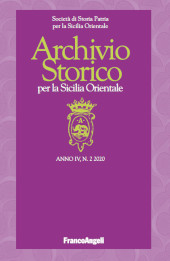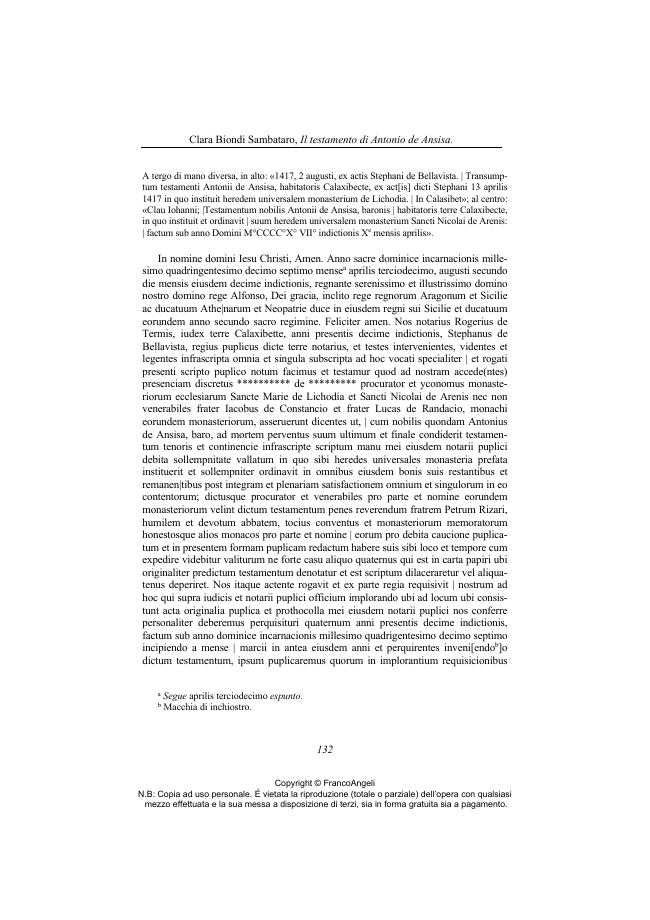Il testamento di Antonio de Ansisa : un barone di Calascibetta devoto a San Nicola
122-141 p.
La copia del testamento dell'Ansisa trova una sua giustificazione nella richiesta dell'abate, frate Pietro Rizzari, per conservare presso l'archivio del monastero, nel timore che il quaderno in carta papiri in cui erano state annotate le sue ultime volontà si potesse, col trascorrere del tempo, deteriorare o disperdere, in quanto avrebbe costituito titolo giuridicamente valido per tutti i diritti vantati dal doppio monastero, nominato erede universale, sui beni in esubero, dopo che si sarà dato esecuzione alle ultime volontà del testatore. [Testo dell'editore].
The copy of a nobleman's testament from Calascibetta finds its justification in the request by the abbot, friar Pietro Rizzari, to keep it in the monastery archive, for fear that the notebook, made of papyrus paper, could deteriorate or fade or get lost over time , as it would have constituted a legally valid title for all the rights claimed by the double monastery, named universal heir, on the assets remaining redundant, after the last will of the testator. [Publisher's text].
-
Articoli dello stesso fascicolo (disponibili singolarmente)
-
Informazioni
Codice DOI: 10.3280/ASSO2020-002008
ISSN: 2532-4756
PAROLE CHIAVE
- testamento, Antonio Ansisa, Calascibetta, San Nicolò l'Arena di Catania
- testament, inventory, Troina, Randazzo, San Nicolò the Arena of Catania, Middle Age, Antonio Ansisa, Calascibetta



